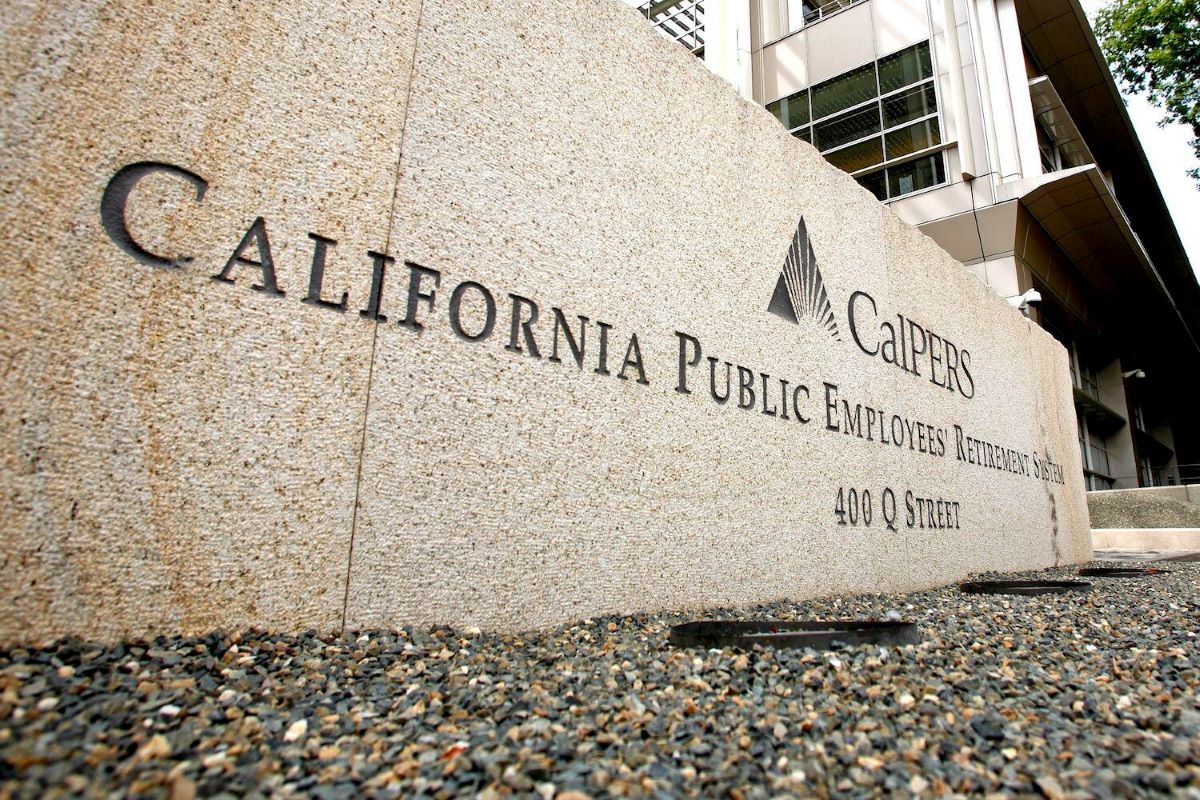

Finance
What Is CA In Accounting
Published: October 10, 2023
Learn what CA in accounting means and how it relates to finance. Gain insight into the role of a chartered accountant in managing financial matters.
(Many of the links in this article redirect to a specific reviewed product. Your purchase of these products through affiliate links helps to generate commission for LiveWell, at no extra cost. Learn more)
Table of Contents
- Definition of CA in Accounting
- Role of CA in Accounting
- Skills Required to Become a CA
- Benefits of Hiring a CA in Accounting
- Types of Services Provided by CAs in Accounting
- Challenges Faced by CAs in Accounting
- Importance of CA in Ensuring Financial Accuracy
- Differences between CA and CPA in Accounting
- Steps to Become a Certified CA in Accounting
- Resources for Further Learning about CA in Accounting
Definition of CA in Accounting
In the field of accounting, CA stands for Chartered Accountant. A Chartered Accountant is a highly skilled professional who specializes in financial management, taxation, auditing, and accounting. They play a crucial role in ensuring the accuracy and integrity of financial statements, providing financial advice, and assisting businesses in making informed financial decisions.
To become a Chartered Accountant, individuals must undergo rigorous training and pass a series of examinations. This professional certification is recognized worldwide and signifies expertise in the field of accounting and finance.
Chartered Accountants are not just bookkeepers or record keepers, but rather strategic advisors who help organizations navigate complex financial processes. They have a deep understanding of accounting principles, tax regulations, and financial reporting standards.
Chartered Accountants can work in various sectors, including public accounting firms, corporate finance departments, government agencies, and non-profit organizations. They can also provide independent consulting services to businesses of all sizes.
The role of a Chartered Accountant goes beyond number crunching. They analyze financial data, interpret financial statements, and provide valuable insights to help businesses optimize their performance and maintain financial health.
Additionally, Chartered Accountants are trained to ensure compliance with legal and regulatory requirements. They assist businesses in adhering to tax regulations, filing accurate financial reports, and conducting audits to ensure transparency and accountability.
Overall, the role of a Chartered Accountant in accounting is crucial for businesses to stay financially sound and compliant with financial regulations. They bring expertise, professionalism, and ethical practices to the table, making them indispensable in the world of finance and accounting.
Role of CA in Accounting
A Chartered Accountant (CA) plays a vital role in the field of accounting, bringing specialized knowledge, skills, and expertise to assist businesses and individuals in managing their financial affairs. The role of a CA extends beyond number crunching and encompasses various responsibilities and tasks. Here are some key roles that a CA performs in the accounting industry:
Financial Reporting: One of the primary responsibilities of a CA is to ensure accurate and timely financial reporting. They prepare financial statements and reports that provide an overview of an organization’s financial position, performance, and cash flows. CAs utilize their understanding of accounting principles and financial reporting standards to ensure compliance and present financial information in a clear and concise manner.
Auditing: CAs are often involved in auditing engagements, where they examine financial records, internal controls, and processes to provide assurance on the reliability and accuracy of financial information. They verify the fairness of financial statements and identify any discrepancies or irregularities. CAs also offer recommendations for improving internal controls and risk management systems.
Tax Planning and Compliance: CAs possess in-depth knowledge of tax laws and regulations. They assist businesses and individuals in developing tax strategies to minimize tax liabilities while ensuring compliance with tax laws. CAs stay updated with changes in tax legislation and provide valuable advice on tax planning, optimizing deductions, and claiming eligible credits.
Financial Analysis and Decision Making: CAs have a deep understanding of financial data and use their analytical skills to interpret and analyze financial statements. They provide insights and recommendations to management for informed decision making. CAs assess the financial viability of projects, evaluate investment opportunities, and contribute to strategic planning and budgeting.
Forensic Accounting: In cases of fraud, CAs may be called upon to investigate financial irregularities and provide expert opinion and testimony in legal proceedings. They perform forensic accounting techniques to analyze financial transactions, identify fraudulent activities, and quantify the financial impact of such activities.
Consultancy and Advisory Services: CAs often serve as trusted advisors to businesses and individuals. They provide consultancy services on various financial matters, such as mergers and acquisitions, financial restructuring, budgeting, and cash flow management. CAs offer strategic guidance and help clients make sound financial decisions.
The role of a CA in accounting is multifaceted and requires a combination of technical expertise, analytical skills, and ethical conduct. CAs are integral to the financial well-being of organizations, ensuring accuracy, compliance, and strategic financial management.
Skills Required to Become a CA
Becoming a Chartered Accountant (CA) requires a diverse skill set that goes beyond just number crunching. To excel in this field, individuals need to develop a combination of technical, analytical, and interpersonal skills. Here are some essential skills required to become a CA:
Financial Knowledge: A strong foundation in accounting principles, financial management, taxation, and auditing is crucial for a CA. They need to understand financial statements, reporting standards, and regulatory requirements to ensure accurate financial reporting and compliance.
Analytical Skills: CAs must possess excellent analytical skills to interpret financial data, identify trends, and analyze complex financial information. They should be able to draw meaningful insights from data to provide recommendations and make informed decisions.
Attention to Detail: Attention to detail is a critical skill for a CA, as they need to review financial records, examine transactions, and ensure the accuracy of calculations. They must have a meticulous approach to detect errors, inconsistencies, or discrepancies.
Problem-Solving Abilities: CAs often encounter complex financial issues that require innovative problem-solving skills. They need to identify problems, evaluate alternatives, and develop effective solutions. CAs should be able to think critically and consider the potential implications of their decisions.
Ethical Conduct: As trusted professionals, CAs are expected to adhere to ethical standards and maintain confidentiality. Integrity and honesty are paramount in building trust with clients and stakeholders.
Communication Skills: Effective communication skills, both written and verbal, are essential for CAs. They need to explain financial concepts and reports to non-financial stakeholders, interact with clients, and convey complex information in a clear and concise manner.
Knowledge of Business Environment: CAs should have a broad understanding of the business environment, including market dynamics, industry trends, and economic factors. This helps them provide valuable insights and strategic advice to clients.
Time Management: CAs often work on multiple projects with strict deadlines. Effective time management skills are crucial to prioritize tasks, meet deadlines, and handle the workload efficiently.
Continuous Learning: The field of accounting is ever-evolving, with new regulations, technologies, and best practices emerging regularly. CAs need to have a commitment to lifelong learning and stay updated with the latest developments in the industry.
Interpersonal Skills: CAs often work as part of a team and interact with clients and colleagues from diverse backgrounds. Strong interpersonal skills such as teamwork, adaptability, and client management are important for building relationships and collaborating effectively.
Developing these skills, in addition to acquiring the necessary education and professional certifications, is essential for individuals aspiring to become successful CAs. By honing these skills, CAs can excel in their roles and contribute to the financial well-being of businesses and individuals.
Benefits of Hiring a CA in Accounting
When it comes to managing finances and ensuring compliance, hiring a Chartered Accountant (CA) can bring numerous advantages to businesses. CAs possess a unique set of skills and expertise that can contribute significantly to the success and growth of an organization. Here are some key benefits of hiring a CA in accounting:
- Financial Expertise: CAs have extensive knowledge and expertise in accounting, taxation, financial management, and auditing. Their deep understanding of financial principles and regulations enables them to provide accurate financial reporting, tax planning, and sound financial advice.
- Compliance and Risk Management: CAs are well-versed in local and international financial regulations. They can ensure that businesses stay compliant with tax laws, financial reporting standards, and other regulatory requirements. CAs also assist in implementing robust internal control systems to mitigate risks and safeguard assets.
- Strategic Financial Planning: CAs can assist businesses in developing effective financial strategies and long-term plans. They analyze financial data, identify trends, and provide valuable insights to drive informed decision-making. CAs help organizations optimize their financial resources and achieve their goals.
- Tax Optimization: With their thorough understanding of tax laws and regulations, CAs can help businesses optimize their tax positions. They provide strategic tax planning advice, identify eligible deductions and credits, and ensure businesses take advantage of available incentives. CAs also handle the preparation and filing of tax returns accurately and on time.
- Financial Analysis and Performance Evaluation: CAs possess strong analytical skills, enabling them to analyze financial statements, identify key performance indicators, and evaluate business performance. They provide meaningful insights into the financial health of an organization, enabling management to identify areas for improvement and make informed decisions.
- Expertise in Auditing: CAs are trained in the art of auditing. They conduct thorough examinations of financial records and internal controls to ensure accuracy, transparency, and compliance. CAs provide assurance to stakeholders that financial statements are reliable, enhancing trust and credibility.
- Business Growth and Expansion: CAs play a crucial role in supporting business growth and expansion. They assist in financial forecasting, capital budgeting, and identifying opportunities for mergers, acquisitions, or strategic partnerships. CAs help businesses identify potential risks and make informed decisions that align with their growth objectives.
- Financial Security and Fraud Prevention: CAs implement robust control systems to protect businesses from financial fraud and embezzlement. They conduct risk assessments and implement internal controls to safeguard assets and ensure accurate financial reporting. CAs also perform forensic accounting techniques to detect and investigate fraudulent activities.
- Peace of Mind: Hiring a CA provides business owners and executives with peace of mind, knowing that their financial affairs are in capable hands. CAs bring professionalism, integrity, and ethical conduct to the table, instilling confidence in the accuracy and integrity of financial information.
In summary, hiring a CA in accounting offers businesses a wide range of benefits, including financial expertise, compliance, strategic planning, tax optimization, financial analysis, and fraud prevention. CAs contribute to the long-term success and financial health of organizations, enabling them to thrive in a competitive business environment.
Types of Services Provided by CAs in Accounting
Chartered Accountants (CAs) offer a wide range of services in the field of accounting, catering to the diverse needs of businesses and individuals. They provide comprehensive financial solutions, specialized advice, and expertise across various domains. Here are some common types of services provided by CAs:
- Accounting and Bookkeeping: CAs assist businesses in maintaining accurate and up-to-date financial records. They handle financial transactions, reconcile accounts, and ensure compliance with accounting standards. CAs also prepare financial statements, balance sheets, and cash flow statements to provide a clear picture of an organization’s financial position.
- Auditing and Assurance: CAs perform audits to evaluate the effectiveness of internal controls and the accuracy of financial information. They review financial statements, analyze financial data, and identify areas of improvement. CAs provide assurance to stakeholders that the financial statements are reliable and comply with auditing standards.
- Taxation Services: CAs possess deep knowledge of tax laws and regulations. They assist individuals and businesses in tax planning, ensuring compliance with tax obligations, and optimizing tax positions. CAs handle the preparation and filing of tax returns, manage tax disputes, and provide guidance on tax-related issues.
- Financial Planning and Analysis: CAs provide strategic financial planning services to businesses. They analyze financial data, evaluate performance indicators, and assist in budgeting and forecasting. CAs help businesses make informed financial decisions, identify growth opportunities, and optimize their financial resources.
- Consultancy and Advisory Services: CAs offer consulting services to businesses and individuals across a range of financial matters. They provide guidance on financial restructuring, mergers and acquisitions, valuation, and business expansion. CAs also advise on risk management, internal controls, and compliance with financial regulations.
- Financial Risk Assessment and Management: CAs assess financial risks faced by businesses and develop risk management strategies to mitigate them. They evaluate potential risks, such as liquidity risk, credit risk, and market risk, and provide recommendations to minimize their impact. CAs help businesses protect their financial assets and make informed risk management decisions.
- Forensic Accounting: CAs with specialized training in forensic accounting assist in investigating financial fraud, embezzlement, and other financial irregularities. They employ forensic techniques to analyze financial data, trace transactions, and quantify the financial impact of fraudulent activities. CAs provide expert opinions and assist in legal proceedings related to financial disputes.
- Business Valuation: CAs offer business valuation services, determining the worth of a business or its assets. They consider various factors, such as financial performance, market trends, and industry comparables, to determine an accurate valuation. CAs assist in mergers and acquisitions, buy-sell agreements, and investment decisions.
- Estate and Succession Planning: CAs provide guidance on estate planning, ensuring the smooth transfer of assets and wealth to future generations. They develop strategies to minimize tax liabilities, create trusts, and establish succession plans. CAs help individuals and families plan for the orderly transfer of assets and protect their financial legacies.
These are just a few examples of the services offered by CAs in accounting. Their wide-ranging expertise and knowledge enable them to provide tailored solutions to meet the unique financial needs of their clients. CAs play an essential role in ensuring financial stability, growth, and compliance for businesses and individuals alike.
Challenges Faced by CAs in Accounting
While being a Chartered Accountant (CA) can be a rewarding profession, it also comes with its fair share of challenges. CAs encounter various hurdles in their work that require them to be adaptable, knowledgeable, and resilient. Here are some common challenges faced by CAs in accounting:
- Complex and Evolving Regulations: CAs must stay updated with constantly changing accounting and tax regulations. Keeping abreast of new standards, amendments, and legal requirements can be time-consuming and demanding.
- Meeting Deadlines: CAs often face tight deadlines, especially during tax season, audits, and financial reporting periods. Managing multiple clients and ensuring timely completion of tasks can be challenging, requiring effective time management and prioritization skills.
- Managing Workload: The nature of the profession can result in a heavy workload, particularly during peak periods. Handling multiple clients and their diverse needs can require CAs to be efficient and maintain a delicate balance between quality and quantity of work.
- Technological Advancements: The advancement of technology, such as automation and cloud-based accounting solutions, presents both benefits and challenges for CAs. Embracing and adapting to new technologies is crucial to streamline processes, enhance efficiency, and stay competitive. However, keeping up with the technological advancements can be a challenge, requiring continuous learning and updating of skills.
- Managing Client Expectations: CAs often face challenges in managing client expectations. Different clients may have varying levels of understanding and demands. CAs must effectively communicate and educate clients about the scope of their services, potential limitations, and realistic expectations.
- Ethical Dilemmas: CAs are bound by ethical standards and professional codes of conduct. They may encounter situations where they need to make difficult decisions that uphold ethical principles while balancing the interests of their clients and stakeholders.
- Increased Competition: The accounting profession is highly competitive, with a growing number of individuals pursuing CA qualifications. CAs need to differentiate themselves by offering specialized services, building strong relationships with clients, and continually upgrading their skills to remain competitive.
- Work-Life Balance: Balancing the demands of work with personal commitments and responsibilities can be challenging for CAs. The nature of the profession often involves long hours during busy periods, leading to potential burnout. Maintaining a healthy work-life balance is essential for long-term sustainability and well-being.
- Continued Professional Development: CAs are required to engage in continuous professional development to stay updated with industry trends, regulations, and advancements. This requires dedication to lifelong learning and investing time and resources in professional development activities.
Despite these challenges, CAs play a crucial role in ensuring financial accuracy, compliance, and providing valuable financial advice. By effectively navigating these challenges, CAs can forge successful careers and make significant contributions to the financial well-being of their clients and organizations.
Importance of CA in Ensuring Financial Accuracy
Chartered Accountants (CAs) play a critical role in maintaining and ensuring financial accuracy for businesses and individuals. With their expertise in accounting principles, financial regulations, and auditing, CAs are instrumental in upholding the integrity and reliability of financial information. Here are some reasons highlighting the importance of CAs in ensuring financial accuracy:
- Compliance with Financial Regulations: CAs have a deep understanding of financial regulations and reporting standards. They ensure businesses and individuals adhere to these regulations, whether it’s filing tax returns, preparing financial statements, or complying with auditing requirements. CAs help to mitigate the risk of non-compliance, ensuring financial information is accurate and in line with legal obligations.
- Accurate Financial Reporting: CAs are responsible for the preparation and presentation of financial statements. They follow standardized accounting practices and principles to accurately record financial transactions, maintain proper documentation, and provide a true and fair view of an organization’s financial position. This accurate reporting allows stakeholders to make informed decisions based on reliable information.
- Auditing and Assurance: CAs perform audits to provide independent assurance on the accuracy and fairness of financial statements. Through thorough examinations and verification procedures, CAs identify any discrepancies, errors, or fraudulent activities. Their objective assessments enhance trust and confidence in the financial information provided by organizations.
- Tax Compliance and Optimization: CAs assist businesses and individuals in meeting tax obligations while optimizing tax positions. They ensure accurate calculation and timely payment of taxes, while also identifying legitimate deductions and credits to minimize tax liabilities. CAs help navigate the complex tax landscape, reducing the risk of errors and penalties.
- Risk Management: CAs assess financial risks faced by businesses and individuals. They analyze financial data, evaluate internal control systems, and identify vulnerabilities. CAs provide recommendations to mitigate risks and protect assets from fraud, errors, or mismanagement. By implementing proper risk management strategies, CAs contribute to the financial accuracy and security of organizations.
- Financial Analysis and Decision Making: CAs possess strong analytical skills, enabling them to interpret financial data, identify trends, and provide valuable insights. They assist businesses in making informed financial decisions by analyzing the financial performance, profitability, and liquidity of the organization. CAs contribute to the accuracy of financial forecasts and assist in strategic planning.
- Corporate Governance and Transparency: CAs uphold corporate governance principles, promoting transparency and accountability within organizations. They ensure that financial transactions and reporting are conducted ethically and in compliance with regulatory requirements. By providing accurate and reliable financial information, CAs foster trust among stakeholders, such as investors, shareholders, and lenders.
- Investor Confidence: Reliable and accurate financial information is crucial for building investor confidence. CAs play a vital role in providing external assurance on financial statements through auditing and verification. Investors rely on the expertise of CAs to assess the financial health and performance of companies, making investment decisions based on trustworthy information.
In summary, CAs are essential in ensuring financial accuracy by promoting compliance, accurate financial reporting, auditing, tax compliance, risk management, financial analysis, and maintaining transparency. Their expertise and commitment to precision contribute to the overall financial integrity and trustworthiness of organizations and individuals.
Differences between CA and CPA in Accounting
While both Chartered Accountants (CAs) and Certified Public Accountants (CPAs) are accounting professionals, there are notable differences between the two designations. These differences lie in the qualifications, certification processes, and areas of specialization. Here are key distinctions between CAs and CPAs in accounting:
- Geographical Scope: CAs are recognized and regulated by national accounting bodies in various countries, including India, Canada, Australia, and the United Kingdom. On the other hand, CPAs are commonly associated with the American Institute of Certified Public Accountants (AICPA) and are primarily recognized in the United States.
- Education and Certification: CAs typically complete a bachelor’s degree in accounting or a related field and then pursue a comprehensive training program, which includes rigorous examinations and practical experience requirements. In contrast, CPAs in the United States are required to hold a minimum of a bachelor’s degree, fulfill specific coursework requirements, pass the Uniform CPA Exam, and meet experience criteria set by state boards of accountancy.
- Exam Structure: The exams to become a CA vary based on the jurisdiction, but they often consist of multiple levels and subjects, including financial accounting, auditing, taxation, and business law. In the United States, the Uniform CPA Exam is a comprehensive exam covering areas such as auditing and attestation, financial accounting and reporting, regulation, and business environment and concepts.
- Specialization: CAs generally have a broader scope of education and training in accounting, covering various areas such as financial accounting, auditing, taxation, and financial management. CPAs, on the other hand, tend to have more specialization options, with the opportunity to focus on areas such as tax accounting, forensic accounting, financial planning, or information technology auditing.
- Regulatory Environment: CAs are subject to the regulations and standards set by their respective national accounting bodies. These bodies establish ethical rules, professional conduct guidelines, and financial reporting standards for CAs to follow. CPAs in the United States are regulated by state boards of accountancy, which enforce state-specific regulations and determine licensing requirements.
- International Recognition: CAs have international recognition, and their qualifications are often transferable across countries with reciprocal agreements. This allows CAs to practice in multiple jurisdictions. CPAs, while primarily recognized in the United States, may also have opportunities for international recognition through agreements and reciprocity with other countries.
- Career Opportunities: Due to their international recognition, CAs often have opportunities to work in various countries, offering a wider range of career options. CPAs, on the other hand, have strong career prospects within the United States, with opportunities in public accounting firms, corporations, government agencies, and non-profit organizations.
- Continuing Education: Both CAs and CPAs are required to engage in continuing professional education to stay updated with industry developments and maintain their professional standing. The specific requirements vary by jurisdiction, but generally, CAs and CPAs need to participate in regular training programs or courses to stay current with accounting standards and regulatory changes.
Ultimately, whether pursuing the CA or CPA designation, both paths require a commitment to education, professionalism, and ongoing learning. While there are distinctions in terms of geography, certification processes, and specialization options, both CAs and CPAs play vital roles in the field of accounting, ensuring accuracy, compliance, and financial integrity.
Steps to Become a Certified CA in Accounting
Becoming a Certified Chartered Accountant (CA) requires a commitment to education, professional training, and passing a series of rigorous examinations. The process to become a CA may vary slightly depending on the jurisdiction, but here are the general steps to follow:
- Education: Obtain a bachelor’s degree in accounting or a related field from a recognized university. The duration of the program may vary depending on the country.
- Training Program: Enroll in a professional training program offered by the respective national accounting body. This program combines practical work experience with formal training and is designed to develop the necessary skills and knowledge required to become a CA.
- Examinations: Prepare for and successfully pass the series of examinations conducted by the national accounting body. These exams typically cover various subjects such as financial accounting, auditing, taxation, and business law. The exams may be conducted in multiple levels, with each level testing different aspects of accounting knowledge.
- Practical Experience: Complete a specified period of practical experience, usually in the form of an internship or articling program. This practical experience is designed to provide exposure to real-world accounting scenarios and develop the necessary skills and competencies required to work as a professional CA.
- Professional Ethics Course: Complete a professional ethics course offered by the national accounting body. This course emphasizes the importance of ethical behavior and professional conduct in the accounting profession.
- Licensing or Certification: Once all the educational requirements, examinations, and practical experience have been successfully completed, apply for certification or licensing with the national accounting body. This step may involve submitting an application, paying appropriate fees, and providing proof of meeting all the necessary requirements.
- Continuing Professional Development: Engage in regular continuing professional development activities to maintain and update knowledge and skills. This may include attending seminars, workshops, and courses, and actively participating in professional accounting organizations.
It is important to note that the specific requirements to become a certified CA may differ based on the jurisdiction and the governing national accounting body. It is advisable to consult the respective national accounting body’s website or seek guidance from professional associations for accurate and up-to-date information on the steps and requirements to become a certified CA in a specific jurisdiction.
By following these steps, aspiring accountants can embark on a rewarding journey to become certified CAs and gain the knowledge, skills, and recognition essential for a successful career in accounting.
Resources for Further Learning about CA in Accounting
Continuing education and professional development are essential for Chartered Accountants (CAs) to stay updated with the latest developments in the accounting field and expand their knowledge and skills. Fortunately, there are numerous resources available for CAs to further their learning and enhance their expertise. Here are some valuable resources for continued learning about CA in accounting:
- Professional Accounting Bodies: National accounting bodies, such as the Institute of Chartered Accountants (ICAI) in India, Chartered Professional Accountants (CPA) in Canada, and Institute of Chartered Accountants in England and Wales (ICAEW), offer a range of educational resources and professional development programs. These bodies provide webinars, seminars, conferences, and workshops covering various accounting topics, technical updates, and industry trends.
- Educational Institutions: Many universities and colleges offer advanced courses, certifications, and postgraduate programs in accounting and finance. These programs provide in-depth knowledge, specialized skills, and practical training to support CAs in their professional development. Online platforms, such as Coursera, edX, and Udemy, also offer a wide range of accounting courses for self-paced learning.
- Technical Literature: Books, journals, and research papers related to accounting are valuable resources for CAs to deepen their understanding of technical accounting concepts and stay abreast of industry developments. Resources like “Financial Accounting and Reporting” by Barry Elliott and Jamie Elliott, “Auditing for Dummies” by Maire Loughran, and “Taxation Essentials for CA-IPCC” by G Sekar and B Sarvana Prasath are widely recommended.
- Accounting Standards and Regulatory Bodies: CAs can refer to accounting standards issued by international bodies such as the International Financial Reporting Standards (IFRS). These standards provide guidelines for financial reporting, ensuring consistency and transparency. Regulatory bodies like the Securities and Exchange Commission (SEC) in the United States and the Financial Reporting Council (FRC) in the United Kingdom also share valuable resources and updates on financial reporting requirements.
- Online Resources and Forums: The internet offers a wealth of online resources for CAs to expand their knowledge. Websites like Investopedia, AccountingTools, and AccountingCoach provide comprehensive articles, tutorials, and videos explaining various accounting topics. Online forums and communities, such as the CAclubindia forum, allow CAs to connect with peers, discuss accounting issues, and seek advice from experienced professionals.
- Professional Networking: Engaging in professional networking through industry events, conferences, and online platforms like LinkedIn allows CAs to connect with like-minded professionals, gain insights into industry trends, and exchange knowledge and experiences. Networking can provide access to mentorship opportunities, professional forums, and valuable contacts in the accounting field.
- Continuing Professional Education: Many accounting bodies require CAs to participate in continuing professional education (CPE) activities to maintain their professional status. These activities include attending seminars, workshops, and conferences specifically designed for CAs. Accounting bodies often provide CPE resources and approved providers that offer relevant and up-to-date educational programs.
By utilizing these resources, CAs can continue to enhance their expertise, stay updated with accounting standards and regulations, develop specialized skills, and foster professional growth. Continuous learning is key to maintaining excellence in the accounting profession and providing high-quality services to clients and stakeholders.














